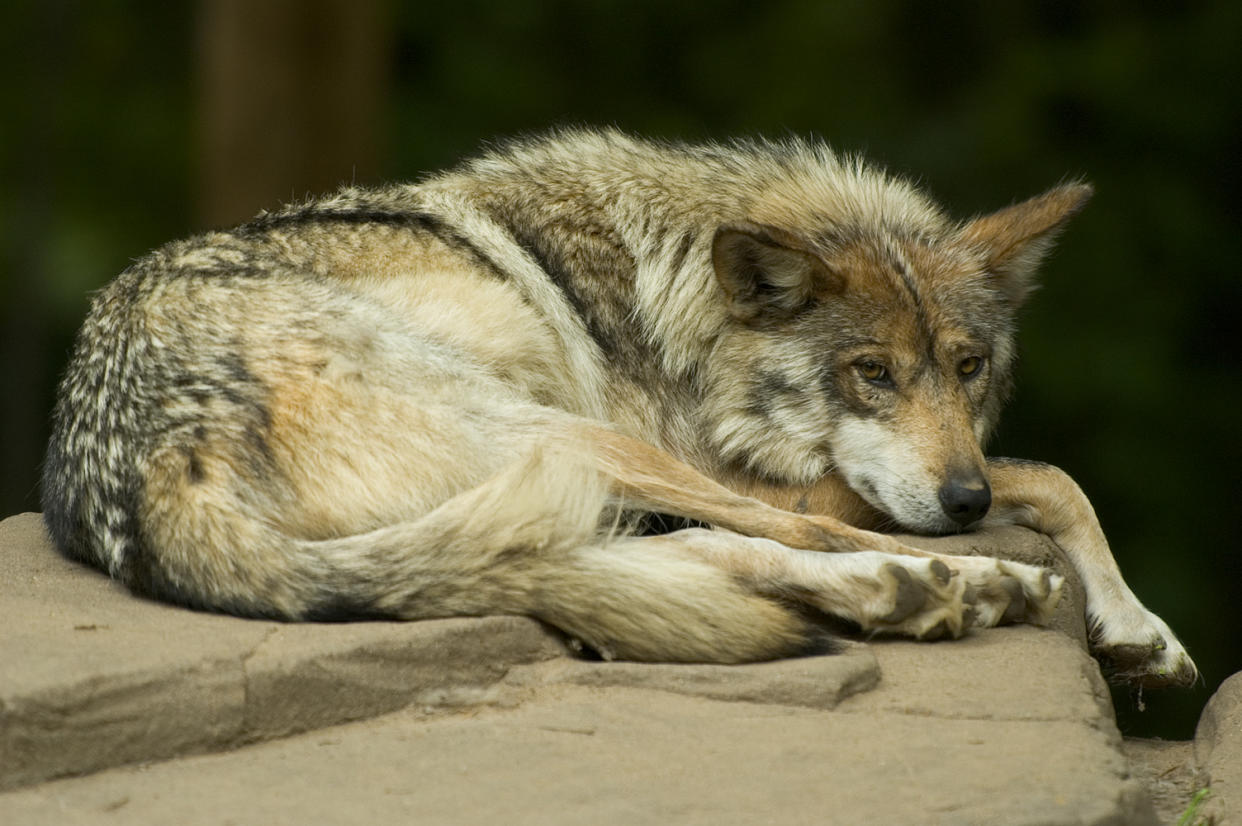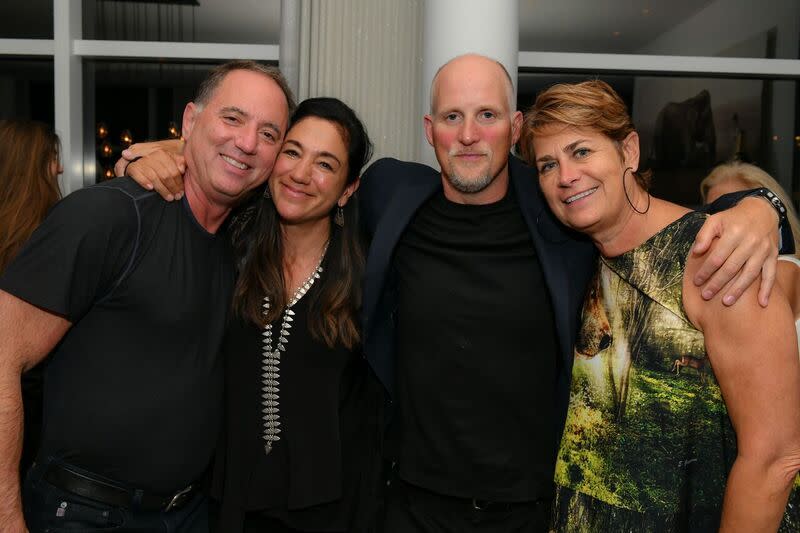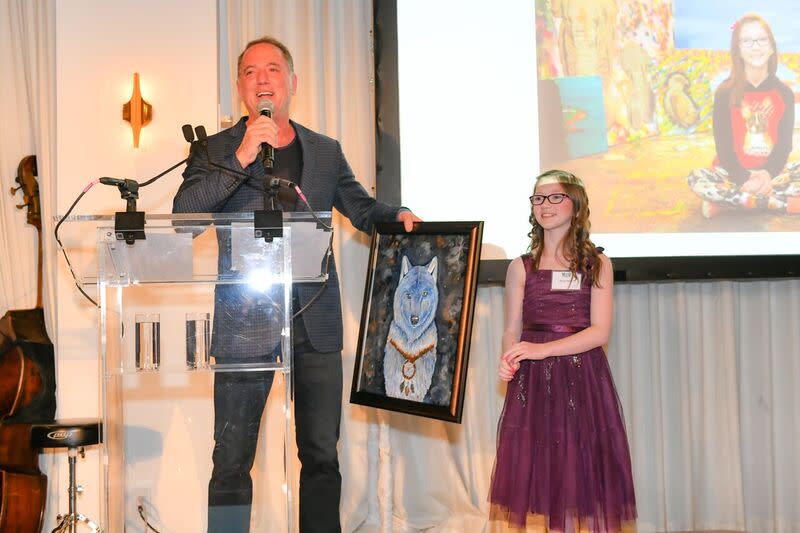Why Wall Street wants to help save the wolves

Billionaire Carl Icahn didn’t always give money to help protect wolves.
“Carl whined to me, ‘Why in the world should he care about wolves?’,” Rich Handler, CEO of investment bank Jefferies told Yahoo Finance.
So, he put it in terms that any activist investor might understand.
“I said, ‘Carl, imagine there are companies that are mismanaged, fat and happy, and not efficient or productive. If there isn’t a top-of-the-food-chain predator to keep them honest, focused, and on their toes, what kind of world would that be?’ He said, ‘Ah, yes wolves are very important — I will contribute!’”
Wall Streeters are dropping big bucks to save the wolves — the real wolves
Last week, nearly 250 people, mostly from Wall Street, gathered for a fundraiser, benefitting the Wolf Conservation Center, a sanctuary in South Salem, New York. The event raised $1.4 million that will go toward building a new education center for visitors.
“Wolves and Wall Street often have bad independent reputations, most of it unfair. When you combine wolves and Wall Street, the perception and visual is even worse,” Handler said. “It was great to see a lot of very good wolves from Wall Street do something great for this amazing species which in turn help protect our environment.”
Handler’s wife, Martha, the board president of the Wolf Conservation Center, explained that wolves are killed off by humans mainly because they’re misunderstood and misrepresented. She noted that wolves occupy the top of the food chain and they play an essential role in the ecosystem, helping keep ungulate (hooved-animals) populations in check, which prevents landscapes from being over-grazed by bison, elk, and deer. Removing wolves can result in devastating consequences for the ecosystem.

“All our beloved dogs are 98.6% wolf, and yet we coddle our dogs and massacre our wolves,” Martha said.
Presently, there are only 114 Mexican gray wolves living in the wild in the U.S. and fewer than 30 red wolves living in the wild, she explained. The WCC recently welcomed four litters of these critically endangered wolves, including 12 Mexican gray wolf pups and ten red wolf pups.
Bones scattered over the tennis court and the purchase of homes that weren’t for sale
For the Handlers, their exposure to wolves began in the late 90s when they moved from Los Angeles to New York with their four young children. At the time, they rented a house in South Salem.
“Soon after we moved into our rental house, 3 strange things began to happen,” Martha told attendees in a speech. “First, I began finding large [deer] bones scattered all over our tennis court. Secondly, I began hearing the sound of wolves howling. And third, wolves began appearing, almost nightly in my dreams.”
She continued: “So, I researched wolves, and I learned that they’re apex predators, which I hadn’t known, and also they’d been extinct in New York since the late 1800s due to unregulated hunting and deforestation. OK, so if this was true, I wondered, whose howls was I hearing?”
She soon met the WCC’s founder, Hélène Grimaud. To grow and care for more wolves, the center needed to acquire more land. Martha tasked her husband Rich with the job.
“My wife Martha forced me to go around the property and buy up the contiguous homes, which we did,” Rich said. “As a lifetime value investor and trader, it goes against every bone in my body to have to knock on someone’s door to buy someone’s home that isn’t for sale, especially when they knew I had to buy it. That said, when Martha tells me what to do, I follow orders, no matter how painful it is or silly I look!”
So what started as a small backyard operation is now a 29-acre home to about 50 wolves.
A $100,000 martini with Carl Icahn
Education remains the top priority for the center. During the event, an auction was held to help raise additional funds to spread the message of wolf conservation. One of those items on the auction block was a martini with Carl Icahn, the famed activist investor.

“I started the bidding for a martini with Carl Icahn at $1.50, suggesting that nobody really want to have a drink with him, let alone pay for the privilege!” Rich said. “I started raising it in 25 cent increments just to tease him and drive him nuts.”
Eventually, he fast-forwarded the bid to $100,000, which was snapped up by a client of Jefferies.
“He got a very good buy,” Handler added.
Icahn paid $15,000 for a painting of a wolf by Bria Neff, an 11-year-old whose art proceeds go toward saving animals.
In attendance were CEOs, private equity chiefs, and hedge fund managers, along with executives from Jefferies. Brian Sheth of Vista Equity Partners, Mike Fisch of American Security Partners, Andrew Weinberg of Brightstar Capital, Seth Bernstein of SMB Capital, and George Weiss of Weiss Investments attended. Famed photographers Paul Nicklen, also the founder of non-profit SeaLegacy, and Gregory Colbert were there. Golden Globe Award-winning actor Ed Norton, whose passion is environmental conservation, showed up too.
Other significant contributors included Michael Milken and Tilman Fertitta, the owner of Landry’s and owner of the Houston Rockets.
—
Julia La Roche is a finance reporter at Yahoo Finance. Follow her on Twitter.
Read more:
Wall Street CEO circulates memo with 5 things veteran employees can learn from interns
Bank CEO recommends these 17 books for interns who want to know about Wall Street


